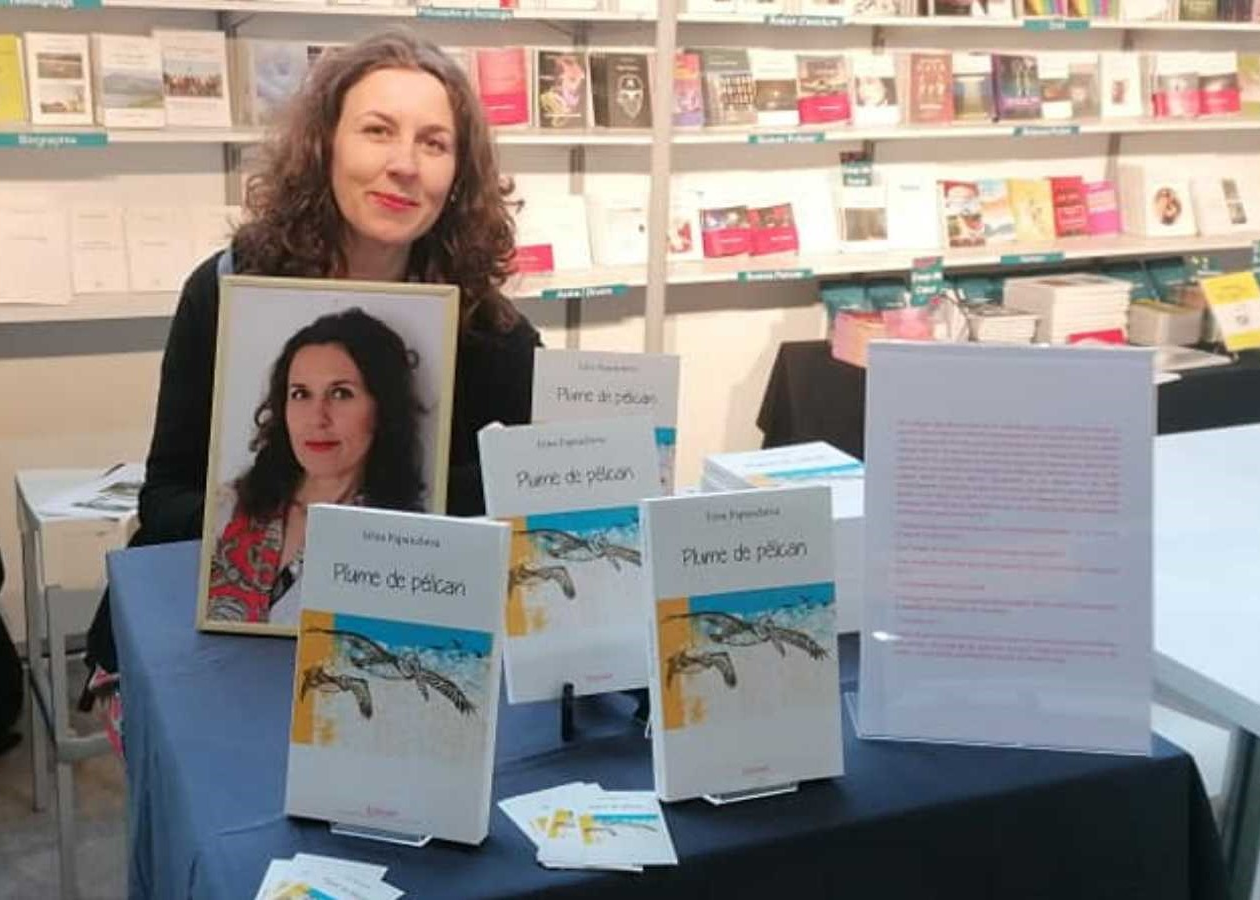
Famous Bulgarian Novelist Expresses Desire to Attend Tehran Book Fair: Enchanting Experience by A Thousand and One Night
1403/02/25-16:12
Irina Papancheva said, "I would very much like to come to Tehran for both the book fair and sightseeing. I am very interested in meeting Iranian writers, authors, and book readers. I hope this opportunity will be provided soon."
According to the press office of the 35th Tehran International Book Fair, Irina Papancheva (born in Burgas, Bulgaria, 1975) is a Bulgarian author living in Brussels, Belgium. She studied Slavic Studies, focusing on Czech language and literature at Sofia University, and European Political Studies at Brussels University. She has published several novels and short story collections, including "Almost Close" (2007), "Woman, Island" (2017), and "Pelican Feather" (2013). Her novel "Pelican Feather" has been translated into English, French, and Arabic. The press office of the book fair had a brief interview with her about her books and the 35th Tehran International Book Fair.
A story of yours has been published in Iran in the book "After Communism." We also know that a translation of your novel "Brussels: Naked" will soon be published in Persian. How familiar are you with Iran and Persian literature?
I am truly grateful to Farid Ghadami for his translations of contemporary Bulgarian literature into Persian. In fact, the story included in this collection is a translation of a chapter from my novel "Brussels: Naked." As a child, I read collections of fairy tales from around the world, including Iranian fairy tales. My maternal grandfather, who was also a great storyteller, used to read "A Thousand and One Nights" to me during my childhood. Five years ago, I reread those stories, which was an enchanting experience for me and revived memories of that distant time. Regarding contemporary Iranian literature, I have only read selections of Farid Ghadami's works in English and French. Beyond this, I must admit that I am not very familiar with Persian literature, which is a shame. However, considering your question, I recently ordered "Women Without Men" and am eagerly looking forward to reading it. Honestly, I am more familiar with Iranian cinema, including Iranian documentaries, which I greatly admire and cherish.
Every year in May, the International Book Fair is held in Tehran. Would you like to attend this event someday and sign your books for Iranian readers?
I would very much like to come to Tehran for both the book fair and sightseeing. I am very interested in meeting Iranian writers, authors, and book readers. I hope this opportunity will be provided soon.
You have written a novel about the city of Brussels, which is your latest published work. Can you tell Iranian readers more about this book?
Places have often been an inspiration and played a prominent role in most of my novels. I become fascinated with locations and start to envision scenes that turn into stories. However, with Brussels, things were different. Brussels is not just a place for me; it's where I chose to live. This novel is a love story that turns into a marriage story. Perhaps that's why it took so long to write this novel. The story is so personal that I wasn't sure how to approach it: did I want to tell my story with Brussels or Brussels' story with me? I chose the latter. Although my personal experience is reflected throughout the novel, it goes far beyond that. Ten out of the twelve chapters of this novel, each named after different areas or neighborhoods of Brussels, are narrated by a different character (two chapters in third person) with different nationalities, races, religions, and statuses. These various narrators each tell an aspect of the novel that is significant to them, considering their backgrounds before coming to Brussels (as immigrants). Each chapter can be read as a standalone story, but they are all interconnected, with characters and events moving from one chapter to another, forming the body of the entire novel and eventually developing and concluding the story. My main character, Iris (named after the flower that is the symbol of Brussels), speaks only in the first and last chapters. She plays an important role in the lives of some narrators but has a minor or no role in others. Through her brief appearances in the novel, the evolution of her life over the fifteen years covered by the novel becomes apparent.
If the story of Brussels is told through you, does it also address the role that Brussels plays as a place in contemporary history? For instance, we know that some EU institutions are headquartered in Brussels, making it a significant place.
I couldn't create an authentic depiction of Brussels without bringing the European Union with its ideals, institutions, and thousands of employees into the scene. It's no coincidence that the novel's timeline starts in 2003 with the signing of the European Constitution and ends shortly after Brexit. Key moments in the European Union's historical journey during this period, and recent European history, such as the Yugoslav Wars, along with their impact on ordinary people, are also depicted in the novel. In the first chapter, Iris wonders if we are united despite our diversity, reflecting the EU's motto, "Unity in Diversity," and the novel indirectly answers this question throughout. While the way I describe the novel might make it seem complex, based on feedback from various readers, I believe it is a book that is smooth and easy to read, a novel where existential concepts are hidden in episodes of everyday life. It also speaks of connection and isolation.
The 35th Tehran International Book Fair, under the slogan "We Read, We Build," will be held from May 8 to May 18, 2024, at the Imam Khomeini Mosalla in person and on the ketab.ir platform.



 بازگشت
بازگشت

